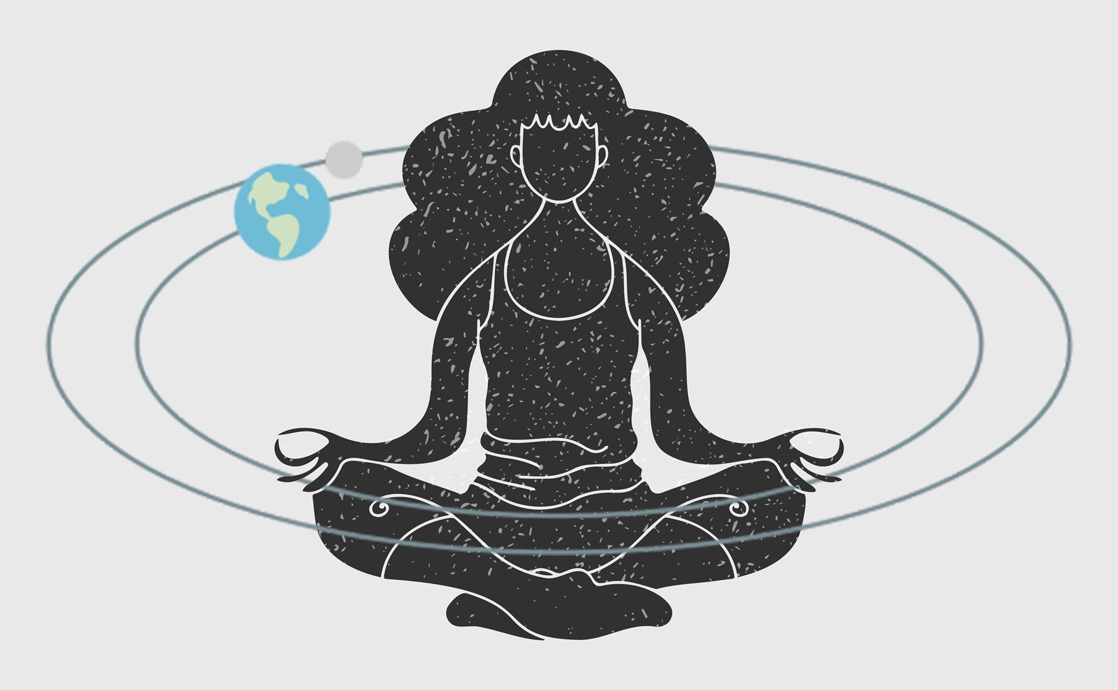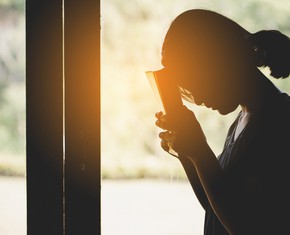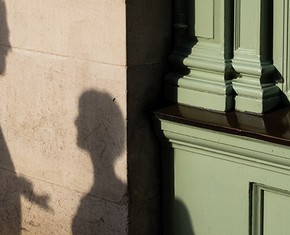The views expressed in our content reflect individual perspectives and do not represent the authoritative views of the Baha'i Faith.
Welcome to 2022! Happy New Year! We’re all probably glad to see 2021 vanish in the rearview mirror, along with its pandemics, poverty, and politics—so how will you resolve to make this year different?
Oh, right, those pesky New Year’s resolutions: who came up with this idea, anyway?
Well, it turns out that just about every religion and ancient culture has some form of New Year’s resolutions. It’s an old tradition—really old.
Actually, did you know that’s why we call this month January? On the first day of each Gregorian year the ancient Romans made promises of self-improvement to Janus, their deity of beginnings and passages. That practice probably originated with the even more ancient Babylonians, who had to promise to their gods at the beginning of each year that they would pay their debts and return things they’d borrowed.
RELATED: A New Year’s Resolution to Try Again
The ancient Hebrews made New Year’s resolutions, too, although the Jewish New Year occurs in autumn in the Northern Hemisphere. The Jewish New Year begins with the two-day festival of Rosh Hashanah, which literally means “head of the year.” The celebration continues through the High Holidays and ends in Yom Kippur, when Jewish people reflect on their failings and wrongdoings during the past year, and then resolve to seek forgiveness—as well as offering their forgiveness to others. The Jewish atonement ritual of tashlikh, where prayers are said near flowing water and the past year’s sins are resolutely and symbolically cast into the water, occurs on Rosh Hashanah.
In Christianity, Catholics, Anglicans, and others observe the venerable Christmas tradition of Midnight Mass, meant to help believers resolve to make their coming new year a more spiritual one than the last. Many other Christian denominations practice a tradition called Watchnight services, when they prepare for the year ahead with reflection, prayer and the making of resolutions. John Wesley, the founder of the Methodist church, started the Methodist watchnight services in 1740, not only to offer an alternative to the typical drunken revelry on New Year’s Eve but to sing hymns, read from scripture and resolve to lead a more spiritual life in the year ahead. Wesley called these watchnight observances Covenant Renewal Services.
For many African American churches, watchnight first took on a truly special meaning on New Year’s Eve of 1863, when Black American slaves crowded into their churches to await and celebrate Abraham Lincoln’s signing of the Emancipation Proclamation on January 1 of that year.
In the Islamic calendar, the New Year comes two lunar months after the end of the annual fasting period of Ramadan, when believers review their own spiritual development during the past year and resolve to abstain from selfish desires, improve their spiritual lives and serve others.
For Baha’is, the process of making resolutions to improve oneself happens not just annually, but daily. Baha’u’llah, the prophet and founder of the Baha’i Faith, wrote in The Hidden Words: “Bring thyself to account each day ere thou art summoned to a reckoning; for death, unheralded, shall come upon thee and thou shalt be called to give account for thy deeds.”
RELATED: My Old-School Paper Datebook, and What I Wish for 2021
In his book The Secret of Divine Civilization, Abdu’l-Baha, the son and successor of Baha’u’llah, suggested one resolution Baha’is everywhere try to implement:
We must now highly resolve to arise and lay hold of all those instrumentalities that promote the peace and well-being and happiness, the knowledge, culture and industry, the dignity, value and station, of the entire human race. Thus, through the restoring waters of pure intention and unselfish effort, the earth of human potentialities will blossom with its own latent excellence and flower into praiseworthy qualities …
In the spirit of all those cultural and religious traditions and the noble purposes their resolutions recommend, here are nine New Year’s resolutions we might all want to consider adopting and putting into practice in 2022:
- To start and end each waking day with a prayer of gratitude for my life, and the love of the Creator it represents.
- To not just tell, but to actively show love to my entire family—the human family.
- To diligently work to rid myself of my prejudices—we all have some, and everyone would be better off without them.
- To practice a period of quiet solitary meditation every day—a consistent spiritual practice of being alone to reflect on my inner thoughts and feelings.
- To commit to a goal of service to others, to making at least one human life besides my own better next year.
- To extend myself beyond my normal social, racial, cultural, and national boundaries—to reach out across the artificial barriers society imposes and befriend someone who isn’t exactly like me.
- To do something significant this year toward the goal of peace in the world, even if just a small volunteer commitment in my own community or a new attitude about dealing with conflicts in a peaceful way.
- To actively show more kindness, not just to the people around me, but to animals, too.
- Finally, to see the world as a place where all of my resolutions can make myself and others happier, more radiant and more spiritually-fulfilled.
With these simple inner resolutions in our hearts and minds, 2022 can bring us all a future that improves on the past.
















Comments
Sign in or create an account
Continue with Googleor